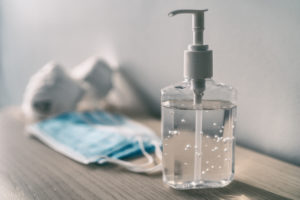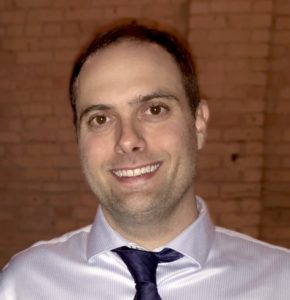What We Can Learn from Vernon Manor’s Zero Positive COVID-19 Cases
 When news of the COVID-19 pandemic first began to circulate in the United States, the staff at Vernon Manor in Vernon, Connecticut knew that they needed to act immediately to protect residents and caregivers.
When news of the COVID-19 pandemic first began to circulate in the United States, the staff at Vernon Manor in Vernon, Connecticut knew that they needed to act immediately to protect residents and caregivers.
Thanks to quick and comprehensive action, all 93 residents of this family-owned post-hospital rehabilitation and long-term care facility have tested negative for COVID-19.
Angela Perry, administrator at Vernon Manor, discussed the elements that contributed to this success so that other facilities may be able to implement these same measures.
Early Action
One key aspect of Vernon Manor’s response is that the facility moved quickly as the COVID-19 pandemic reached the United States. “I think that we’ve done a good job in monitoring the global marketplace, looking to see what was happening in China, and then following that first incidence that occurred at a nursing facility in Seattle, Washington,” explains Perry. “We tried to assess and evaluate what was happening elsewhere to understand how we could mitigate those challenges here.
“At the end of February, flu outbreaks were a hot topic of discussion, and we were already at a point where we were looking at different preventative measures to reduce exposure. Our administrative team created a threat analysis to look at our weaknesses and strengths.”
Vernon Manor administrators relied on guidance from the Centers for Disease Control and Prevention, the state department of public health, and the Connecticut Association for Healthcare Facilities. Administrators conversed with different parties, shared best practices, and did a deep dive to assess Vernon Manor’s needs.
The facility began to implement its preventative measures, including restricting visitors and following universal masking procedures, at the end of February. This was well in advance of Connecticut’s first confirmed COVID-19 case on March 8th.
Identifying and Implementing Appropriate Technology
Technology also plays an integral role in the facility’s response to COVID-19. Vernon Manor strategically placed Novaerus air purifying units in high-traffic areas. Total Exhaust Air units on the roof were replaced, and a REME HALO Hydro-Peroxide Air Scrubber, which helps to purify the air, was also installed.
“As a team, we thought that the HALO Hydro-Peroxide Air Scrubber would be a great addition to eliminating any potential exposure to any bacteria,” explains Perry.
“The Novaerus Air units offer continuous air disinfection, so we placed those in smaller units in our common areas that see high traffic, like our nursing stations, conference rooms, and break rooms. This technology is one piece of the puzzle that really helped to mitigate bacteria spread.”
Ongoing Adjustments and Awareness
As the Centers for Disease Control and Prevention and the Department of Public Health release COVID-19 updates and additional information, Vernon Manor adjusts its plan to reflect this new guidance.
“We have to be on the spot with reviewing information, looking at current practices, and evaluating how we can make changes,” says Perry. Staff review that information during daily meetings and make necessary adjustments. Frontline staff have daily huddles where supervisors share current practices and updates.
To keep families updated, Vernon Manor uses One Call Now, an electronic system that lets the facility instantly send phone calls, texts, and emails to residents’ family members. This efficient system is ideal for sending out time-sensitive updates.
Additionally, the facility holds Town Hall meetings for families every Wednesdays. Families call in to these meetings where they learn about local, national, and facility updates, and Vernon Manor also gives a comprehensive overview of the facility plans that are implemented or that will be implemented.
“Families offer their ideas and feedback, and this creates a great chance for us to maintain our engagement with them,” says Perry. “These Town Halls give us the additional support that we need from the families, and we’re able to offer engagement and create an ongoing dialogue.”
A Focus on Staff Lives Outside of the Facility
Vernon Manor administrators ensured that staff were included in all aspects of the management plan, but the facility also took things one step further. Rather than only focusing on providing PPE and training staff for their time spent in the facility, Vernon Manor also provided staff with PPE for personal use, too.
“We wanted to reiterate the importance of implementing best practices not only when you’re in the facility but also when you’re home,” explains Perry. Staff received masks and hand sanitizer to help reduce their exposure when they were at home, at the grocery store, at the gas station, or at the pharmacy.
Evidence of Success
Connecticut Governor Ned Lamont and the State of Connecticut Department of Public Health required that all nursing home residents be tested for COVID-19 as part of the state’s efforts in fighting the pandemic. Vernon Manor residents were tested on May 18th and the 100% negative test results suggest that the facility’s efforts in preventing COVID-19 transmission are working.
Even with Vernon Manor’s success, Perry remains cautious. “We have to remain humble and understand that we can be impacted at any point in time,” says Perry. “We want to express our support and appreciation to all of the other facilities and what they’re experiencing. Everyone is a hero during this pandemic.”
A Summary of Vernon Manor’s Efforts
The effectiveness of Vernon Manor’s efforts may lie in the comprehensiveness of the plan:
- Created a threat analysis to assess the facility’s needs and develop a plan.
- Visitors limited and universal masking implemented at the end of February.
- Created a COVID-19 Facility Resource Guide.
- Performed a quarterly lookback at PPE and supply usage in February to determine PPE needs.
- Consulted with vendors to secure a 3-month supply of PPE early on during the pandemic.
- Trained staff in N95 fit testing.
- Implemented minimum biweekly surveillance calls with the nurse leadership team, managing partners, and others to discuss and assess needed changes to the plan.
- Created designated observation/isolation units for symptomatic residents.
- Strategically placed Novaerus air purification units in high-traffic areas like nursing stations and conference rooms.
- Replaced Total Exhaust Air Units on the facility’s roof.
- Installed REME HALO Hydro-Peroxide Air Scrubbers in the designated observation/isolation units.
- Socially distanced staff in work areas.
- Developed an agreement with FEMA contractor Batelle Decontamination to sanitize N95 masks.
- Activated oxygen piping in the designated observation/isolation units.
- Provided staff with masks and disinfectant wipes for personal use.
- Holds daily meetings to assess information from the CDC and DPH.
Holds daily staff huddles to ensure all frontline staff are aware of up-to-date procedures. - Holds Town Hall meetings every Wednesday where staff can call in via conference calls to share updates and ask questions.
- Holds weekly meetings where residents’ families can call in to receive updates and offer ideas and feedback.
- Uses One Call Now electronic phone call/text/email system to promptly communicate with residents’ families.

Paige Cerulli is a contributing writer to i Advance Senior Care.
Related Articles
Topics: Administration , Departments , Disaster Preparedness , Executive Leadership , Facility management , Featured Articles , General Technology , Infection control , Operations , Resident Care , Risk Management , Technology & IT









